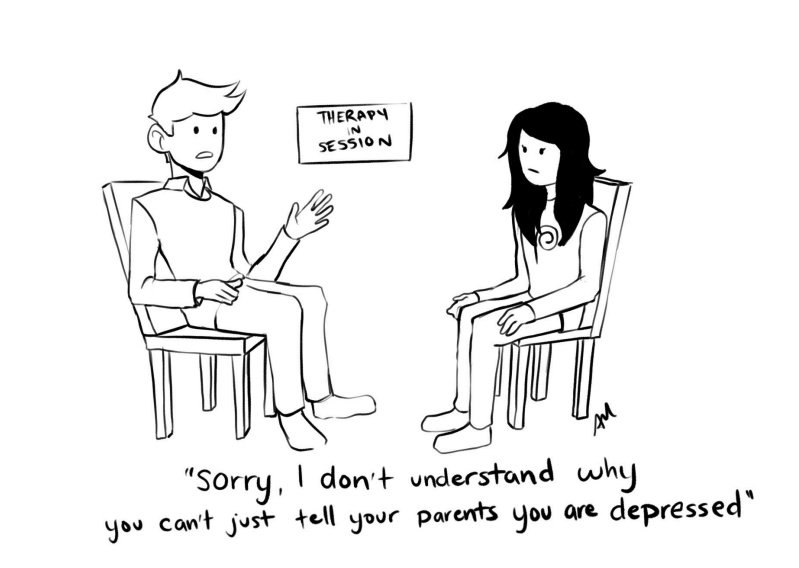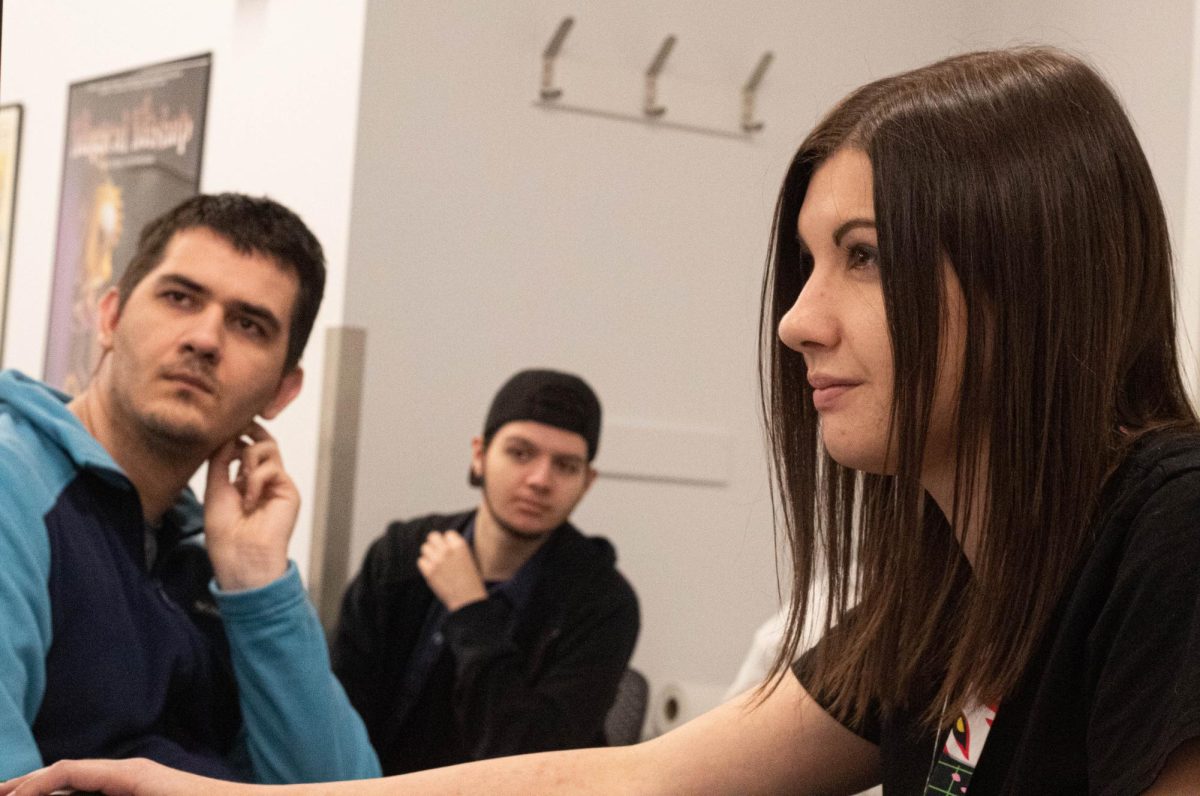MENTAL HEALTH ISSUE
As Columbia decreases course offerings and increases tuition to help address the $38 million deficit, some students are worried about the effect that these changes will have on Columbia’s disabled community.
Alma Rodriguez is the co-president of Varying Visions, a club that provides a safe space for students whether their disabilities are visible or invisible. She said larger class sizes specifically may negatively impact neurodivergent students.
“Bigger class sizes may create problems for students who thrive better in a smaller class setting because of the more one-on-one help and accessibility to professors,” Rodriguez said.
To address a lower enrollment of about 1,000 students in the fall, the college cut 304 class sections for the next school year. This already has led to larger class sizes for some courses.
Julez Rhein is the disability student advocate for the Student Government Association. She said many disabled students prefer individual time with instructors.
“Whether it be sensory issues or it may be something physical, smaller class sizes definitely help us become more engaged with our teachers and they don’t leave us unheard,” Rhein said.
Faculty also have expressed concerns about how larger class sizes will impact their ability to give students individualized attention.
A CDC study found that adults with disabilities report experiencing more mental distress than those without disabilities. Frequent mental distress is associated with poor health behaviors, increased use of health services, mental disorders, chronic disease and limitations in daily life. The pandemic also impacted the lives and mental well-being of people with disabilities at higher rates.
Columbia students with disabilities have had to navigate all of that, along with increased financial stress.
To help address the deficit, full-time tuition for the 2024-2025 school year will be $32,372, a 5% increase from last year. This will mark a 20% total increase over the past three academic years.
“When there’s an increase in tuition, it can have an impact beyond the cost of a single bill,” said Charee Mosby-Holloway, director of Student Diversity & Inclusion.
Mosby-Holloway said when students struggle to pay for tuition, they may also struggle with paying for groceries or housing.
“My hope for Columbia is that we are prioritizing our most vulnerable students and community members as we continue this process,” she said.
Rhein said tuition increases can cause mental stress for students that have expenses related to their disability. “Medication or therapy, any sort of hospital bills or doctor’s visits, those can really pile up.”
Rhein said she is worried that the changes to class sizes and tuition will drive disabled students away from Columbia.
“My main concern is that the diversity here won’t be as strong or as vibrant as I was promised,” she said. “I don’t wanna be the only disabled student in a class filled with students who are mostly able-bodied.”
As the disability student advocate, Rhein works closely with both SGA and Services for Students with Disabilities, or SSD.
SSD provides outreach and helps disabled students advocate for their needs, including academic accommodations. Director Jeanne Kelly said disabled students are welcome to approach SSD with their concerns about class sizes, tuition increases or other proposed changes.
“If we cannot resolve their concerns, we will connect them with someone who can,” Kelly said in an email. “We provide outreach to students on a regular basis to let them know we are here to support them.”
SSD sends weekly newsletters to help students keep up with important information or events. They also partner with SGA and SDI for events such as Autism Awareness Month programming and a Fibromyalgia awareness event at the student center.
“SSD is a really good place to go when you have, when you need accommodations,” Rhein said. “Sometimes I feel that students don’t know too much about it or have never even heard of it, but it’s one of the places I suggest to go when you are a disabled student or if you have any sort of mental illness and you need some sort of support.”
To help balance the budget, the college is expected to restructure and make budget cuts in different departments and offices. Rhein said she is concerned that SSD will eventually be affected.
“Students with disabilities are terrified of going to school or returning to school in the fall and not having what they need to stay at college and have the most normal and exciting college experience that we were all promised when coming to Columbia,” she said.
Kelly said regardless of any restructuring, SSD will remain available to students. “This important function for our students is mandated by federal laws.”
Copy edited by Lily Thomas.





















